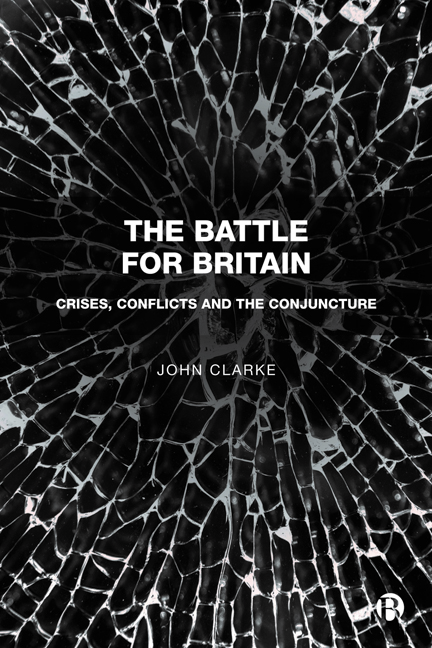3 - Accounting for Brexit
Published online by Cambridge University Press: 18 January 2024
Summary
The need to think conjuncturally is nowhere better demonstrated than in the moment of Brexit. Accounting for Brexit has tended to take simplifying forms, ranging from a focus on manoeuvring within the Conservative Party to the grand global explanations centred on neoliberal capitalism. In this chapter I explore three ways of locating and explaining Brexit as exemplifications of the problems of focusing on one dynamic. I address explanations that treat Brexit as one example of a wider global rise of populist politics, explanations that centre on the disruptive and dislocating effects of neoliberal globalisation, and finally, explanations that treat the Brexit vote as the reactions of the ‘left behind’ in the UK. Each of the lines of argument to be explored here – populism, neoliberalism and the ‘left behind’ – has provided organising narratives for the phenomenon of Brexit and its afterlife.
These accounts focus on and amplify particular causes for Brexit and have helped to shape popular ‘common sense’ about what Brexit means. Given how Brexit has shaped the political and cultural landscape, the sheer weight of attention devoted to it is not surprising and nor is the effort that has gone into solidifying particular explanations into narratives of what this means for Britain, Europe, or even the world. Let me be clear: my argument here is not that there has been no rise of populism as a political formation, nor that neoliberalism has not reshaped the world in important ways. But to focus on such dynamics as the explanatory framing of Brexit precisely misses the conjunctural complexity that I have been drawing out in the preceding chapters – and with it the need to think of Brexit as a crucially overdetermined moment within the conjuncture.
Populism prevails?
We have broken free from a failing political union. We have managed, the little people, the ordinary people who have ignored all the threats that have come from big business and big politics and it has been a huge, amazing exercise in democracy. (Nigel Farage, quoted in Dunn, 2016)
- Type
- Chapter
- Information
- The Battle for BritainCrises, Conflicts and the Conjuncture, pp. 54 - 71Publisher: Bristol University PressPrint publication year: 2023

